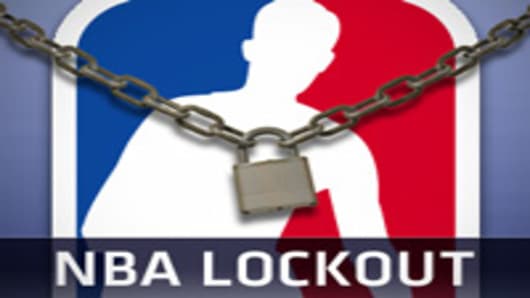When the NBA players announced their intention to disband their union with the plans to file an antitrust lawsuit against the league, they were putting $3.3 billion of their own money on the line.
Here's the math.
If they took the deal and earned 50 percent of Basketball Related Income, they'd make approximately $2.1 billion collectively for the season. NBA players would lose about $800 million to $1 billion over the course of a 10-year deal by conceding to go from where they wanted to be (52 percent) to where the league wanted them to be (50 percent).
So by taking nothing, they lose that $2.1 billion, but also could lose the ability to get a better deal. If NBA commissioner David Stern holds on his offer that the next best deal he'll offer is 47 percent of Basketball Related Income, that's another $1.2 billion lost over a 10-year deal.
Then, you have to factor in the fact that a lost season would likely lead to a decrease in revenue due to a decline in fan interest. I conservatively figured that revenue will be down 1.5 percent in Year 1 and 1 percent in Year 2 before getting back to the business it was last year in the third year. That's another $107.5 million split between the players and owners.
That's how I get $3.3 billion.
Now, let's discuss what they can win.



